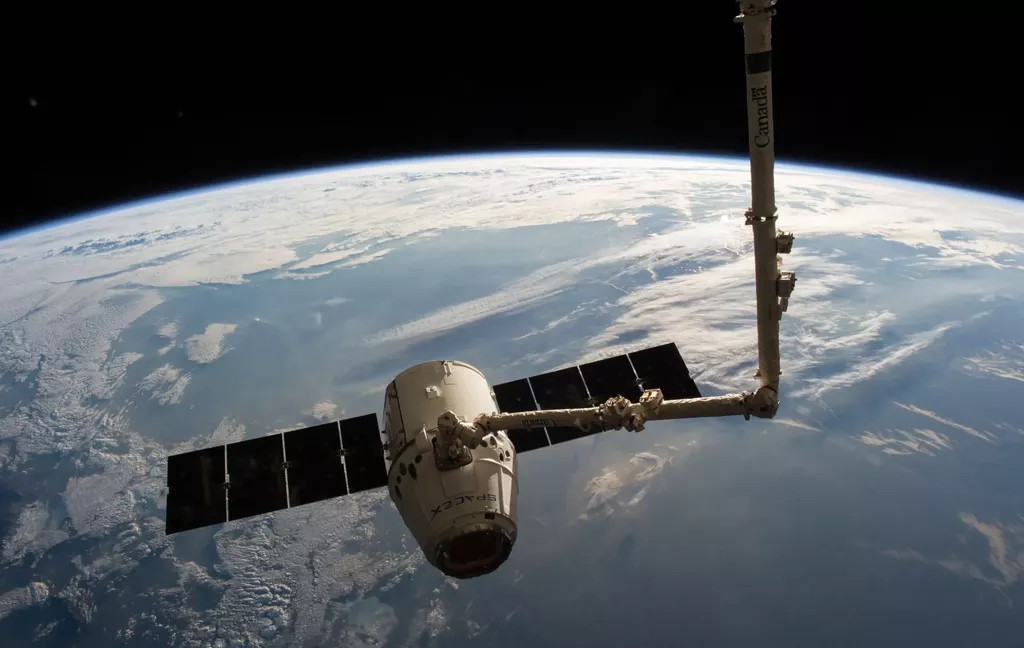A European agenda for space: resilience, security and sovereignty
Past event In person

- Area of Expertise
- Digital & Data Governance
Digital & Data Governance

Senior Partner at McKinsey & Company
Breakthroughs in biological science and its confluence with data, advanced analytics, and automation have the potential to transform economies and societies. Over time, the Bio Revolution could address 45% of the global burden of disease. Biological innovations are becoming ever more critical as we fight off the pandemic crisis. Such innovations have also been identified as important contributors to solving major human challenges such as climate risk, sustainability, and feeding the planet. However, if we are to capture the sizable benefits of the Bio Revolution, we need to collaborate to mitigate profound risks and issues. Get this right and this revolution could have very significant benefits; get it wrong and the consequences could be severe.
The scope of the wave of bio innovation is very large, according to a recent report from the McKinsey Global Institute, 60% of all the inputs to the world economy are either biological now, or could be produced using biological processes in the future. Many ‘bioroutes’ to production potentially will use less energy, use less water, and emit fewer emissions. Nylon is already being made using genetically engineered yeast instead of petrochemicals. Realising the visible innovation pipeline—MGI’s research focused on 400 applications all of which are already scientifically feasible—could reduce average greenhouse gas emissions by as much as 9% by 2050.
The CRISPR-Cas9 gene-editing tool is one important underlying technology that has emerged in this revolution powered by increasingly cheap and rapid sequencing of the human genome and advances in data analytics. However, by its nature, modifying biology is risky. CRISPR is available to buy on the internet relatively cheaply; individuals with malicious intent could easily use it to create a new virus, for instance.
Biological organisms are self-replicating, self-sustaining, and interrelated. They do not respect borders as demonstrated by the rapid global spread of COVID-19. Gene drives—genetic engineering applied to vectors of infectious disease such as mosquitoes in the case of malaria—could save many lives. But we may not be able to control them. The next generation of edited mosquitoes in one field experiment in Brazil were supposed to die, but the mosquitoes are still breeding five years later.
The risks of some technologies and applications may outweigh the potential benefits
Data privacy has caused intense debate about digital technologies. In that case, the data may be about shopping habits. In the case of biology, the data are from our bodies and brains: next-level intrusion. The European Union takes a relatively strict approach to the sharing of genomic data than other jurisdictions, with special provisions under the General Data Protection Regulation.
Unless handled with thought and seriousness, the risks of some technologies and applications may outweigh the potential benefits. Scientists cannot pursue innovation in a vacuum—society matters and innovators need to play a consistent and effective governance role. They have a long track record of doing so.
Back in 1975, prominent scientists, lawyers, and medical professionals gathered at the Asilomar Conference in California to draw up voluntary guidelines to ensure the safety of recombinant DNA technology, for instance. Also, it was a catalytic moment when Jennifer Doudna who, together with French microbiologist Emmanuelle Charpentier, actually invented CRISPR, reacted to the use of the tool to gene-edit twin human embryos by calling for a moratorium on human germline editing.
Governments who regulate new bio innovations and businesses that buy them need to be part of the sustained conversation on risk. Indeed, MGI’s Bio Revolution research found that as much as 70% of the potential impact of the Bio Revolution hinges on the approach governments take to mechanisms governing the use of innovation.
Governments, scientists, businesses, and individuals all need to work together
Regulation today is uneven and without more coordination of the mechanisms governing the use of bio innovation, there is a danger of a risk-laden race to the biological frontier. Scientific advances in some sensitive areas may be shunned by some countries but viewed as a unique competitive advantage for businesses or economies in others, with the potential commercial gains overriding the desirability of regulation for risk.
In the case of genetically engineered crops whose genome have been altered with gene-altering tools like CRISPR, while the US Department of Agriculture views gene editing as the equivalent of traditional breeding of plants, the Court of Justice of the European Union ruled in 2018 that gene-edited crops should be subject to the same stringent regulations as conventional genetically modified organisms.
The Bio Revolution is already underway, and in order to solve the significant human challenges facing us from climate risk to food security and the health of our citizens, we need to capture its potential. But we need to do that safely, working together to maximise this revolution’s potential even while managing its risks. Governments, scientists, businesses, and individuals all need to work together. We need to inform ourselves, becoming literate in what can often be highly technical and complex, and hold an active and open debate on how this revolution can—and should—proceed.
Past event In person

Next event In person & livestreamed

Past event Online

Past event In person





Stay informed
We use cookies and similar technologies to adjust your preferences, analyze traffic and measure the effectiveness of our campaigns. Learn more about our privacy policy.